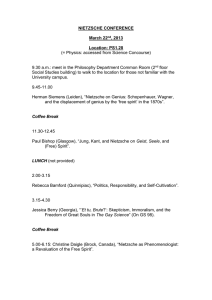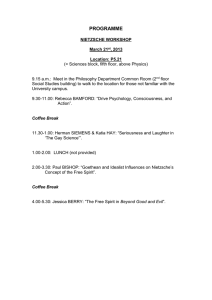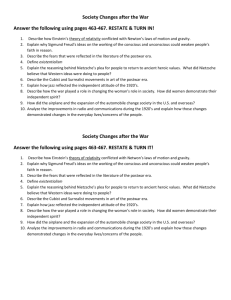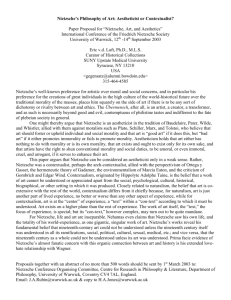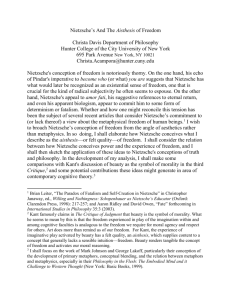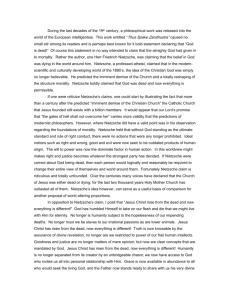Marinete Araujo da Silva
advertisement
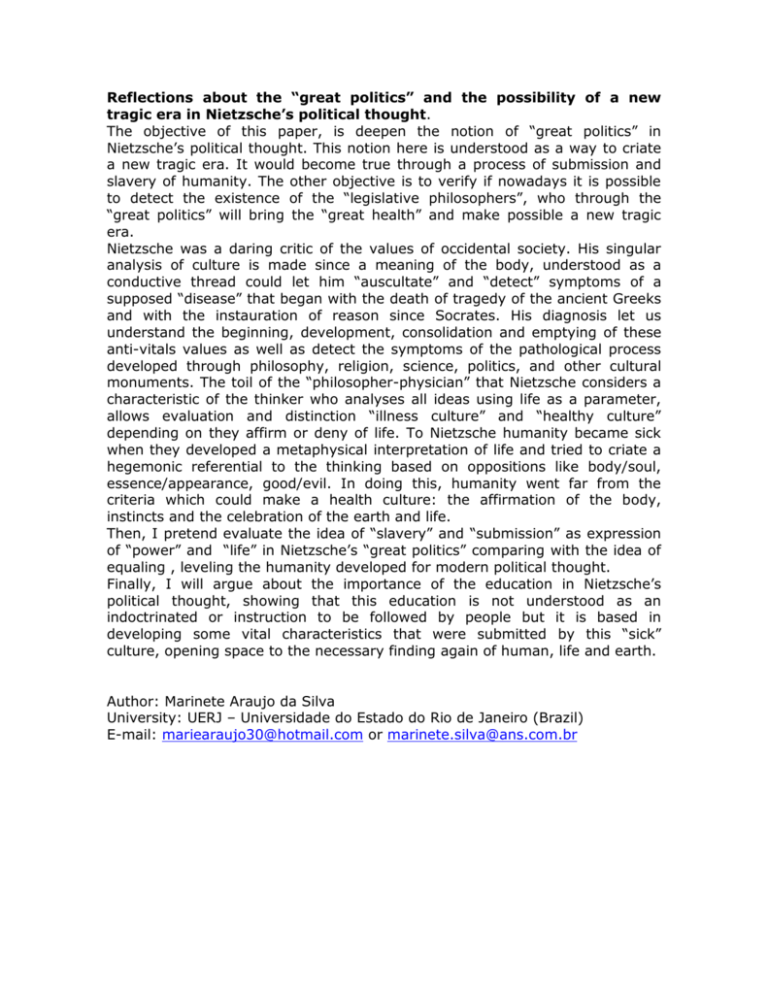
Reflections about the “great politics” and the possibility of a new tragic era in Nietzsche’s political thought. The objective of this paper, is deepen the notion of “great politics” in Nietzsche’s political thought. This notion here is understood as a way to criate a new tragic era. It would become true through a process of submission and slavery of humanity. The other objective is to verify if nowadays it is possible to detect the existence of the “legislative philosophers”, who through the “great politics” will bring the “great health” and make possible a new tragic era. Nietzsche was a daring critic of the values of occidental society. His singular analysis of culture is made since a meaning of the body, understood as a conductive thread could let him “auscultate” and “detect” symptoms of a supposed “disease” that began with the death of tragedy of the ancient Greeks and with the instauration of reason since Socrates. His diagnosis let us understand the beginning, development, consolidation and emptying of these anti-vitals values as well as detect the symptoms of the pathological process developed through philosophy, religion, science, politics, and other cultural monuments. The toil of the “philosopher-physician” that Nietzsche considers a characteristic of the thinker who analyses all ideas using life as a parameter, allows evaluation and distinction “illness culture” and “healthy culture” depending on they affirm or deny of life. To Nietzsche humanity became sick when they developed a metaphysical interpretation of life and tried to criate a hegemonic referential to the thinking based on oppositions like body/soul, essence/appearance, good/evil. In doing this, humanity went far from the criteria which could make a health culture: the affirmation of the body, instincts and the celebration of the earth and life. Then, I pretend evaluate the idea of “slavery” and “submission” as expression of “power” and “life” in Nietzsche’s “great politics” comparing with the idea of equaling , leveling the humanity developed for modern political thought. Finally, I will argue about the importance of the education in Nietzsche’s political thought, showing that this education is not understood as an indoctrinated or instruction to be followed by people but it is based in developing some vital characteristics that were submitted by this “sick” culture, opening space to the necessary finding again of human, life and earth. Author: Marinete Araujo da Silva University: UERJ – Universidade do Estado do Rio de Janeiro (Brazil) E-mail: mariearaujo30@hotmail.com or marinete.silva@ans.com.br


